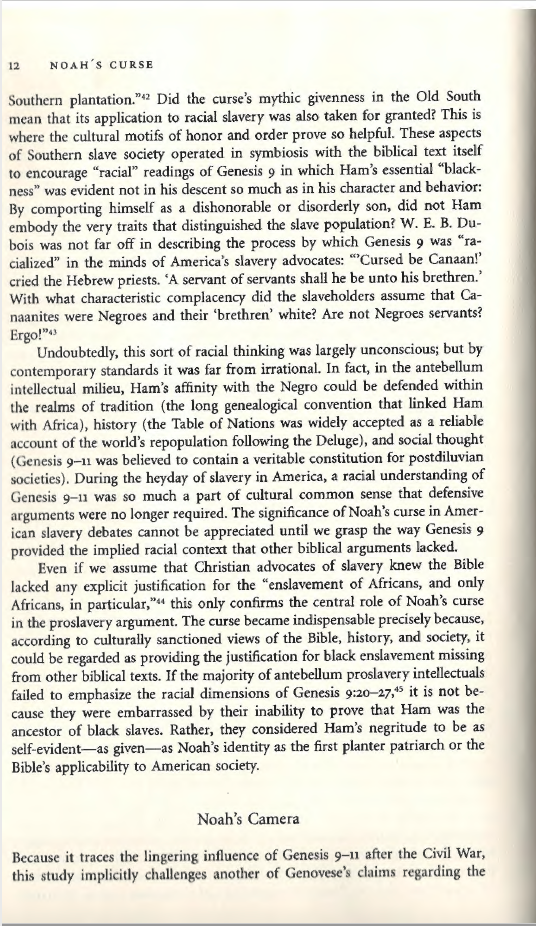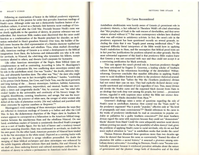Stephen Haynes argues that associating Biblical curse language with Black people was common in the mid-nineteenth-century.
- Type
- Book
- Source
- Stephen R. Haynes Non-LDS
- Hearsay
- Secondary
- Reference
Stephen R. Haynes, Noah's Curse: The Biblical Justification of American Slavery (New York: Oxford University Press, 2002), 12
- Scribe/Publisher
- Oxford University Press
- People
- Stephen R. Haynes
- Audience
- Reading Public
- Transcription
Did the curse's mythic givenness in the Old South mean that its application to racial slavery was also taken for granted? This is where the cultural motifs of honor and order prove so helpful. These aspects of Southern slave society operated in symbiosis with the biblical text itself to encourage "racial" readings of Genesis 9 in which Ham's essential "blackness" was evident not in his descent so much as in his character and behavior: By comporting himself as a dishonorable or disorderly son, did not Ham embody the very traits that distinguished the slave population? W. E. B. Dubois was not far off in describing the process by which Genesis 9 was "racialized" in the minds of America's slavery advocates: "'Cursed be Canaan!' cried the Hebrew priests. 'A servant of servants shall he be unto his brethren.' With what characteristic complacency did the slaveholders assume that Canaanites were Negroes and their 'brethren' white? Are not Negroes servants? Ergo!"
Undoubtedly, this sort of racial thinking was largely unconscious; but by contemporary standards it was far from irrational. In fact, in the antebellum intellectual milieu, Ham's affinity with the Negro could be defended within the realms of tradition (the long genealogical convention that linked Ham with Africa), history (the Table of Nations was widely accepted as a reliable account of the world's repopulation following the Deluge), and social thought (Genesis 9-11 was believed to contain a veritable constitution for postdiluvian societies). During the heyday of slavery in America, a racial understanding of Genesis 9-11 was so much a part of cultural common sense that defensive arguments were no longer required. The significance of Noah's curse in American slavery debates cannot be appreciated until we grasp the way Genesis 9 provided the implied racial context that other biblical arguments lacked.
- Citations in Mormonr Qnas
The B. H. Roberts Foundation is not owned by, operated by, or affiliated with the Church of Jesus Christ of Latter-day Saints.


